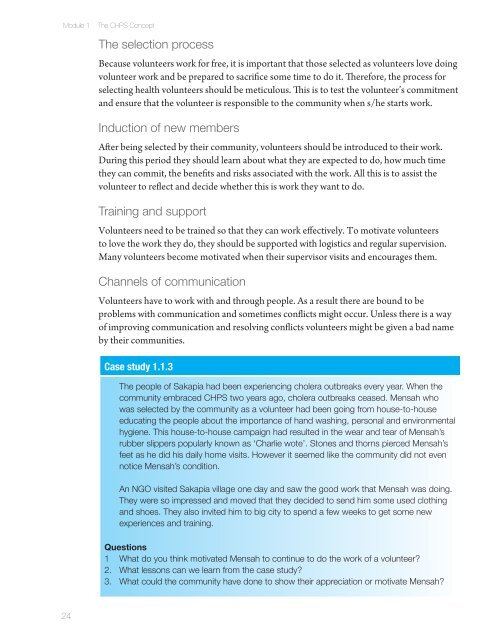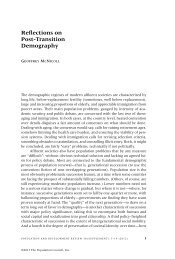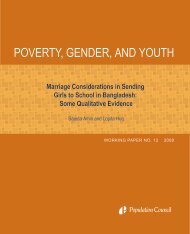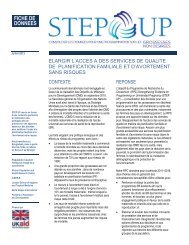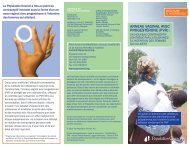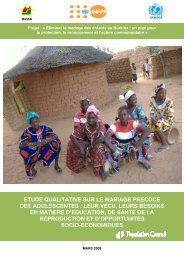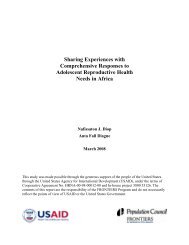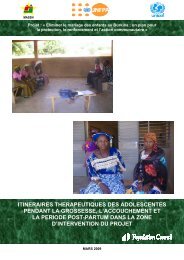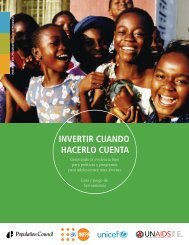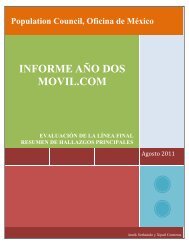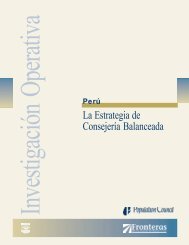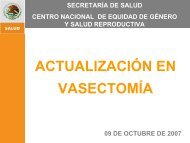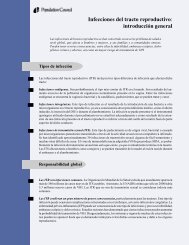Community Health Volunteer's Training Manual - Population Council
Community Health Volunteer's Training Manual - Population Council
Community Health Volunteer's Training Manual - Population Council
You also want an ePaper? Increase the reach of your titles
YUMPU automatically turns print PDFs into web optimized ePapers that Google loves.
Module 1 The CHPS Concept<br />
24<br />
The selection process<br />
Because volunteers work for free, it is important that those selected as volunteers love doing<br />
volunteer work and be prepared to sacrifice some time to do it. Therefore, the process for<br />
selecting health volunteers should be meticulous. This is to test the volunteer’s commitment<br />
and ensure that the volunteer is responsible to the community when s/he starts work.<br />
Induction of new members<br />
After being selected by their community, volunteers should be introduced to their work.<br />
During this period they should learn about what they are expected to do, how much time<br />
they can commit, the benefits and risks associated with the work. All this is to assist the<br />
volunteer to reflect and decide whether this is work they want to do.<br />
<strong>Training</strong> and support<br />
Volunteers need to be trained so that they can work effectively. To motivate volunteers<br />
to love the work they do, they should be supported with logistics and regular supervision.<br />
Many volunteers become motivated when their supervisor visits and encourages them.<br />
Channels of communication<br />
Volunteers have to work with and through people. As a result there are bound to be<br />
problems with communication and sometimes conflicts might occur. Unless there is a way<br />
of improving communication and resolving conflicts volunteers might be given a bad name<br />
by their communities.<br />
Case study 1.1.3<br />
The people of Sakapia had been experiencing cholera outbreaks every year. When the<br />
community embraced CHPS two years ago, cholera outbreaks ceased. Mensah who<br />
was selected by the community as a volunteer had been going from house-to-house<br />
educating the people about the importance of hand washing, personal and environmental<br />
hygiene. This house-to-house campaign had resulted in the wear and tear of Mensah’s<br />
rubber slippers popularly known as ‘Charlie wote’. Stones and thorns pierced Mensah’s<br />
feet as he did his daily home visits. However it seemed like the community did not even<br />
notice Mensah’s condition.<br />
An NGO visited Sakapia village one day and saw the good work that Mensah was doing.<br />
They were so impressed and moved that they decided to send him some used clothing<br />
and shoes. They also invited him to big city to spend a few weeks to get some new<br />
experiences and training.<br />
Questions<br />
1 What do you think motivated Mensah to continue to do the work of a volunteer?<br />
2. What lessons can we learn from the case study?<br />
3. What could the community have done to show their appreciation or motivate Mensah?


